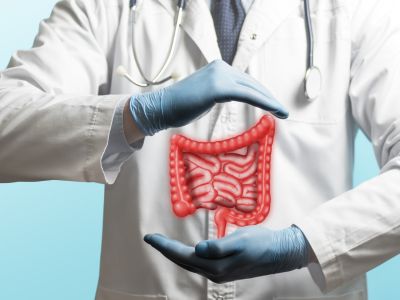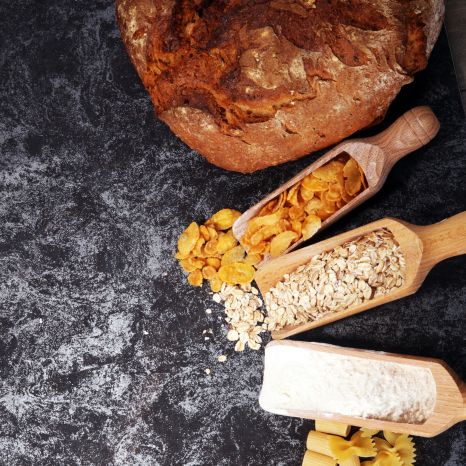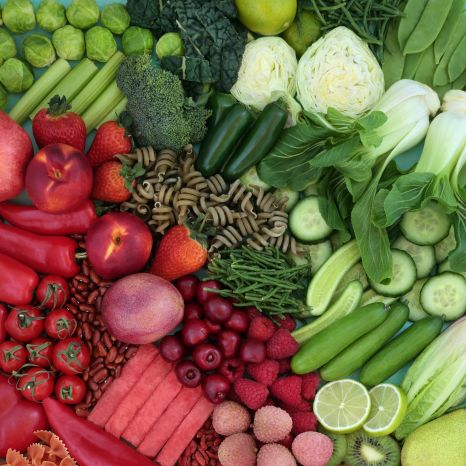What should be included in your short bowel syndrome diet?
Short bowel syndrome refers to a set of complications that are caused by poor absorption of nutrients in the intestines. Here’s what your diet should look like if you have short bowel syndrome.
What should be included in your short bowel syndrome diet?
Short bowel syndrome refers to a set of complications that are caused by poor absorption of nutrients in the intestines. Here’s what your diet should look like if you have short bowel syndrome.
Short bowel syndrome is a relatively rare condition that affects about three out of every one million people.
This is due to the fact that the poor nutrition absorption complications associated with the conditions appear in people who have:
- Parts of their small or large intestine removed as surgical procedures
- Experienced significant damage to the small intestine
- Poor motility in the intestines
The severity of small bowel syndrome can vary from mild to severe depending on the functionality of the small intestine.

Short bowel syndrome is a relatively rare condition that affects about three out of every one million people.
This is due to the fact that the poor nutrition absorption complications associated with the conditions appear in people who have:
- Parts of their small or large intestine removed as surgical procedures
- Experienced significant damage to the small intestine
- Poor motility in the intestines
The severity of small bowel syndrome can vary from mild to severe depending on the functionality of the small intestine.


Treating short bowel syndrome
Your healthcare provider may recommend one of the following treatments depending on the severity of the condition and the patient’s nutritional needs.
- Nutritional support
- Medications
- Surgery
- Intestinal transplant
Nutritional support is the main form of treatment for short bowel syndrome and can include oral rehydration, parenteral nutrition, enteral nutrition, and vitamin and mineral supplements. A special short bowel syndrome diet may be recommended to the patient as well.
Treating short bowel syndrome
Your healthcare provider may recommend one of the following treatments depending on the severity of the condition and the patient’s nutritional needs.
- Nutritional support
- Medications
- Surgery
- Intestinal transplant
Nutritional support is the main form of treatment for short bowel syndrome and can include oral rehydration, parenteral nutrition, enteral nutrition, and vitamin and mineral supplements. A special short bowel syndrome diet may be recommended to the patient as well.

Short bowel syndrome diet
Here’s what your diet should look like if you have short bowel syndrome.

Eat complex carbohydrates
Complex carbs are easier to digest than simple carbs found in foods like sweets and yoghurts. A variety of grains and vegetables contain complex carbs and since they are high in vitamins in minerals as well, they are a great addition to your diet.

Incorporate more soluble fibres
While both soluble and insoluble fibres are important for health, soluble fibres are better as they help slow the digestion process. This is because soluble fibre absorbs water well, contributing to faecal bulk and the ability to hold water.

Make hydration a priority
Water is not the best choice for hydration here. Water and other hypotonic fluids such as tea, coffee, and alcohol can worsen the conditions. Hydrating yourself with an oral rehydration solution with ideal sugar and salt amounts is the best option.

Avoid processed foods
The most important dietary change you can make is to avoid heavily processed foods as much as possible. If your dietician has recommended a meal plan for you, try to make these from home with fresh ingredients and home cooking techniques.

Avoid food with simple sugars
Avoiding simple sugars is a vital part of any short bowel syndrome diet. Simple sugars are present in candy, fruit juices, baked goods, yoghurts, sodas, etc. Try and avoid consuming these food items as it can lead to fluid and nutrient loss.

Food to include in your diet
Food that you could include in your short bowel syndrome diet that matches these guidelines:
- high-protein foods such as fish, meat (chicken, turkey, beef, pork), eggs, tofu, and nut butter (smooth peanut butter, almond butter)
- Low-fibre complex carb foods such as white bread, white rice, white pasta, skinned potatoes
- Fatty food such as oils, butter, margarine, mayonnaise, and salad dressings should be taken in moderation
Make sure to eat 6-8 small meals a day to put less stress on your bowels and ensure all nutrients are well-absorbed. Try to drink at least 8 glasses of liquids every day as well.
Food to include in your diet
Food that you could include in your short bowel syndrome diet that matches these guidelines:
- high-protein foods such as fish, meat (chicken, turkey, beef, pork), eggs, tofu, and nut butter (smooth peanut butter, almond butter)
- Low-fibre complex carb foods such as white bread, white rice, white pasta, skinned potatoes
- Fatty food such as oils, butter, margarine, mayonnaise, and salad dressings should be taken in moderation
Make sure to eat 6-8 small meals a day to put less stress on your bowels and ensure all nutrients are well-absorbed. Try to drink at least 8 glasses of liquids every day as well.

FAQ
Should I take vitamin and mineral supplements?
Your healthcare professional can suggest vitamin and mineral supplements since nutrient absorption can be compromised. These could include B-complex vitamins, iron, calcium, magnesium, and fat-soluble vitamins (A, D, E, and K).
How many meals should I eat per day?
For SBS patients, frequent, short meals are advised to aid digestion and nutrient absorption. Throughout the day, aim to eat 6 to 8 smaller meals.
Which cooking techniques are more suitable for SBS patients?
Stomach-friendly cooking techniques include steaming, boiling, baking, and broiling. Avoid frying or using excessive amounts of oil.
What should individuals with SBS eat?
The major aims of the SBS diet are to manage symptoms, maintain hydration, provide adequate nutrition, prevent problems such as electrolyte imbalances and malnutrition, and minimise diarrhoea.
Should you see a specialist to treat short bowel syndrome?
If you are experiencing severe symptoms of short bowel syndrome, a gastrointestinal specialist can help you manage the conditions and recommend treatments. Contact an IBS Specialist in Sydney today and rid yourself of worries.
